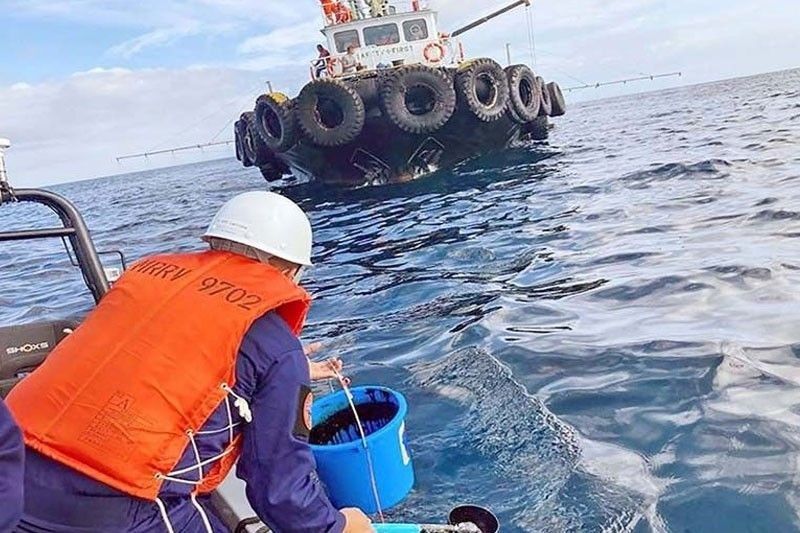Fish from Oriental Mindoro safe for consumption – scientist

MANILA, Philippines — Fish affected by the oil spill from the sunken MT Princess Empress in Oriental Mindoro are safe for consumption, according to an expert from the Department of Science and Technology (DOST).
In an interview with “The Chiefs” aired on Cignal TV’s OneNews last Tuesday night, DOST oil spill lead expert Hernando Bacosa cited a study in the United States following the deepwater oil spill in the Gulf of Mexico in 2010 where at least 8,000 fish were sampled and declared as safe for human consumption.
“At least 800 million liters of oil were spilled in the Gulf of Mexico, compared with 900,000 liters (in Oriental Mindoro). Based on the sampling of 8,000 fish, the conclusion is that the fish are safe to consume as the level of PAH (polycyclic aromatic hydrocarbons) was low,” Bacosa said.
PAHs are a class of chemicals that occur naturally in coal, crude oil and gasoline, according to a fact sheet published by the US Centers for Disease Control and Prevention in November 2009.
The Bureau of Fisheries and Aquatic Resources (BFAR) has said that the fishing ban should continue in areas affected by the oil spill despite its findings that the fish samples collected showed low-level PAH.
“Despite low-level contaminants found in the samples, the bureau recommends keeping fishing bans in oil spill-hit municipalities in Oriental Mindoro since the initial analyses are not yet conclusive evidence, as far as food safety is concerned,” it said in its bulletin.
PAHs are harmful to humans and other living organisms and may accumulate in the flesh of marine organisms over time, according to the agency.
“We have to base it on science but for me, personally, after two weeks of the oil spill, I know that the fish is safe to consume as the fish can easily get rid of the PAH in its flesh as it has oil degrading bacteria in its intestine,” Bacosa said.
He added that the fish has a high ability to get rid of PAH in its body, compared with shrimp, squids, clams and shellfish.
“Shrimp, crabs and squids are considered moderate while clams and shellfish have slow ability to grade and high risk. That is why I personally believe that fish are safe to consume, but we need data from the BFAR,” Bacosa said.
The scientist warned that the impact on the mental health of fisherfolk is more severe compared with the possible harmful effects of the oil spill.
“The first solution here is if we can lift the fishing ban, life will be much better for thousands of our countrymen in Oriental Mindoro. I went with the Coast Guard, I walked along the shorelines. It is more saddening to know that fisherfolk have nothing to eat, they have to pay for transportation. They cannot provide money for their kids who go to school because of the fishing ban,” he said. – Marc Jayson Cayabyab, Ramon Efren Lazaro
- Latest
- Trending

































